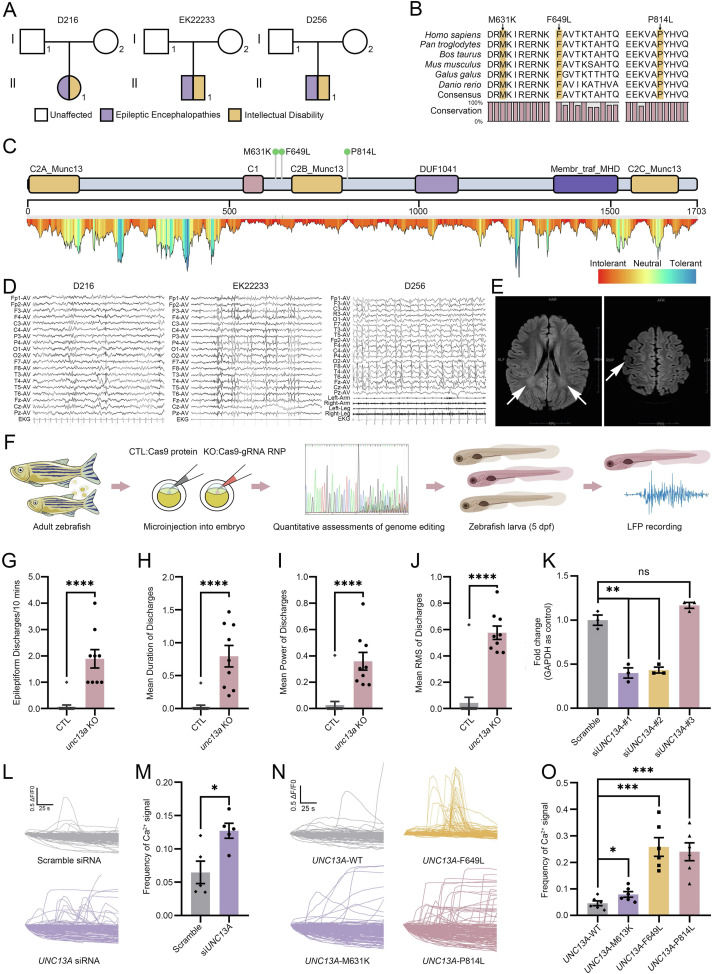
De novo missense variants of UNC13A are implicated in epileptic encephalopathies and neurodevelopmental disorders


Epilepsy is a prevalent and serious neurological disorder affecting more than 65 million individuals worldwide. The etiology of epilepsy is multifaceted, with genetic factors implicated in 70%–80% of epilepsy cases, based on early twin or family-based studies. Despite over 1000 monogenic epilepsy-associated genes have been identified, the etiology for over 50% of epilepsy cases with suspected genetic risk remains undetermined in both clinical and research studies.1 UNC13A, a gene encoding the presynaptic protein Munc13-1, plays a crucial role in neurotransmitter release at synapses.2 Although UNC13A variants have been reported to be associated with various neurological disorders,3 their involvement in epilepsy remains uncertain.
